This is what forensics refers to...
LAW
A person who has committed a crime or other harmful action
PERPETRATOR
The full name of the molecule that contains the genetic information that makes up an organism's development and function
Deoxyribonucleic acid
A professional who is trained to collect, preserve, and process evidence at the scene of a crime.
CRIME SCENE INVESTIGATOR
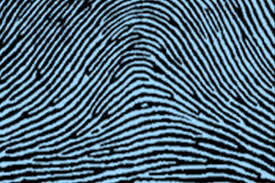
PLAIN ARCH
A person who helps another commit a crime.
ACCOMPLICE
The application of scientific methods to legal matters, such as criminal or civil cases.
FORENSICS
A person's account of what they witnessed at an event, such as a crime or accident, that could later be used or given in a court of law.
EYEWITNESS TESTIMONY
Interpreting information perceived from the senses.
PERCEPTION
AFTER DEATH
This occupation specializes in examining people who have died suddenly, unexpectedly, or violently
FORENSIC PATHOLOGIST
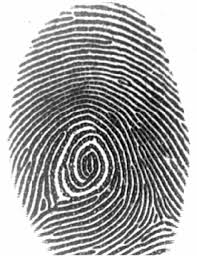 This occupation/scientist derives from Greek 'odonto', and Gk 'logia'
This occupation/scientist derives from Greek 'odonto', and Gk 'logia'
CENTRAL POCKET WHORL
Tangible items like biological material, fibers, hairs, and latent fingerprints collected at a crime scene or accident.
EVIDENCE
What are the 4 Mortises
A claim or piece of evidence that one was elsewhere when an act, especially a criminal one, is alleged to have taken place.
ALIBI

A substance that can start or change the rate of a chemical reaction without becoming part of the reaction itself
CATALYST
A scientist who studies the harmful effects of chemicals and other substances on living organisms and the environment
TOXICOLOGIST
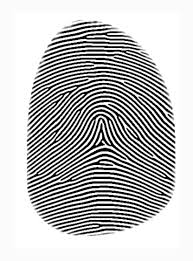
TENTED ARCH
A person who is believed to have committed a crime and is under suspicion due to physical evidence
SUSPECT
The post-mortem stiffening of muscles caused by the depletion of adenosine triphosphate (ATP) from the muscles.
RIGOR MORTIS
A detailed examination of a body for the purpose of determining how an individual died
AUTOPSY
A psychological phenomenon that causes people to see or hear meaning in random or ambiguous patterns or images.
PAREIDOLIA
Interview, Examine, Document, Process
The use of science by the justice system to resolve civil disputes, enforce criminal laws, and protect public health.
Hint: 2 words
Forensic Science
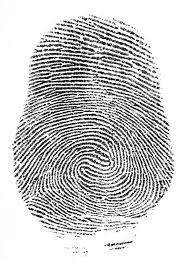
The reason why a person committed a crime.
A sign of death that occurs when blood pools in the lower parts of the body after a person dies, causing the skin to appear purplish red
LIVOR MORTIS
A common phenomenon that describes how people are better at recognizing faces of their own race than faces of other races.
CROSS-RACE EFFECT PHENOMENA
When an individual inaccurately recounts memories or events that are untrue or chronologically out of sequence but does so because of added (wrong info) without the intent to deceive
CONFABULATION
A chemical test used to determine if a substance may contain blood
KASTLE MEYER TEST
The study of friction ridge structures on the skin and their use for personal identification
RIDGEOLOGY
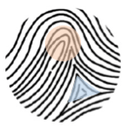 What type of loop enters and exits toward the thumb?
What type of loop enters and exits toward the thumb?
RADIAL LOOP
RIDGES AND VALLEYS
The gradual cooling of the body after death, as it reaches the same temperature as its surroundings
ALGOR MORTIS
A hidden impression of a person's fingerprint or palm print that has been transferred to another surface using specific chemicals or patterns.
LATENT PRINT
A psychological phenomenon that occurs when misleading information distorts a person's memory of an event. It can have serious implications for the accuracy of eyewitness testimony because it can lead to wrongful convictions.
THE MISINFORMATION EFFECT
Determines a person's DNA profile by establishing how many times a DNA sequence, appears in a chromosomal location.
STR or SHORT TANDEM REPEAT UNIT
FIELD, LABORATORY, & MEDICAL
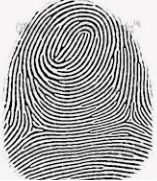
ACCIDENTAL WHORL
The information a person provides in court.
TESTIMONY
A criminal's distinct pattern of behavior or method of operation can be used to identify them as the perpetrator of multiple crimes.
MODUS OPERANDI OR M.O.
It occurs when a person convicted of a crime is officially cleared based on new evidence of innocence.
EXONERATION
A belief or an idea that many people believe to be true, but which is because it is based on incorrect information or reasoning
FALLACY
OBJECTS or MATERIALS that have retained the characteristics of other objects through direct CONTACT.
the field of mechanics concerned with the launching, flight behaviour and impact effects of projectiles, especially ranged weapon munitions such as bullets, unguided bombs, rockets or the like
BALLISTICS
What are the points in a fingerprint where ridges end or split? They are a key feature used in fingerprint identification.
MINUTIAE POINTS
What is a set of guidelines or procedures that govern the process of collecting and analyzing evidence called?
A Latin phrase referring to an individual or group's habitual way of operating that forms a discernible pattern.
MODUS OPERANDI
LOCARD'S EXCHANGE PRINCIPLE
Perceptions are constructions - something that our minds manufacture- & they are influenced by opinions, beliefs, etc. We believe they are true, but...
PERCEPTUAL FALLACY
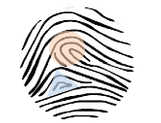 What is the loop called when it enters and exits toward the pinky finger?
What is the loop called when it enters and exits toward the pinky finger?
ULNAR LOOP
A Greek word that describes the investigation of the ridges of the inner surfaces of the hand and foot.
Dactyloscopy
ULNAR LOOPS (94% of loops are ulnar) followed by RADIAL LOOPS
The process of documenting and maintaining the chronological history of evidence.